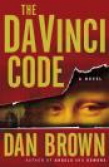
16 May 2006 — People are twice as likely to believe that Jesus Christ fathered children after reading the Dan Brown blockbuster and four times as likely to think of the Catholic organisation Opus Dei as a murderous sect, according to Opinion Research Business (ORB) poll results.
The poll was commissioned by the Da Vinci Code Response Group, a group of Catholics who accuse Dan Brown of a dishonest marketing strategy based on ‘peddling fiction as fact’.
The Group says that the survey results show the need for a “health warning” at the beginning of the film.
The DVC Response Group is co-ordinated by Dr Austen Ivereigh, the Archbishop of Westminster’s Director for Public Affairs. It includes a Benedictine abbot, a Jesuit priest, theologians, members of Opus Dei and other lay people.
The novel has been read by more than one in five adults (22%) of all ages in Britain.
A total of five questions were put last weekend to a nationally representative sample of more than 1,000 adults by the leading pollster ORB.
Of those who had read the book, almost one in three (32%) thought the Priory of Sion – a twentieth-century hoax by a French monarchist – was a real medieval organisation, a figure which fell to just six per cent among non-readers.
Sixty per cent of the adults polled who read the book believed there was truth to the claim that Jesus had children by Mary Magdalene. This compared to just 30 per cent of those who has not read it.
Those who had read the book were significantly more likely (36%) than those who hadn’t read it (25%) to believe the Church was engaged in a 2,000-year conspiracy to cover up the truth.
“Our poll shows that for many, many people the Da Vinci Code is not just entertainment,” Austen Ivereigh said. “For many it is just fiction. But an alarming number of people take its spurious claims very seriously indeed.”
The DVC Response Group has been calling on Sony Pictures to include a disclaimer at the beginning of the film of the book, which is released worldwide on Friday. The Group says the disclaimer should make clear the film is fiction, as did the Last Temptation of Christ.
The film’s director, Ron Howard, last week rejected that call, saying the film no more needed a fiction disclaimer than a spy thriller.
“From the start, the marketing strategy behind the Da Vinci Code has been to claim that it is based on respected theories,” Ivereigh said. “Brown and Sony have encouraged people to take it seriously, while hiding behind the claim that it is fiction. Our poll shows they should take responsibility for their dishonesty, and issue a health warning.”
Asked if they thought whether the Catholic organisation Opus Dei had ever ordered or carried out a murder, 17 per cent of readers polled believed it had – compared with just 4 per cent of non-readers.
Jack Valero, spokesman for Opus Dei UK, described it as an “astonishing” statistic.
“Since we were founded in 1928 Opus Dei has promoted the highest moral standards at work, spreading a message of Christian love and understanding, yet the Da Vinci Code has persuaded hundreds of thousands of people that we have blood on our hands.”
Opus Dei has been careful to avoid calls for protests or boycotts, while taking advantage of the organisation’s new notoriety to make it better known.
“We have been saying that the Da Vinci Code is harmless fun as long as you don’t take it seriously,” Ivereigh added. “But it will be hard for Catholics to enjoy the film knowing that hundreds of thousands do take it seriously.”
© 2006 Ekklesia. Posted on Religioscope with permission. An initiative of the Anvil Trust, Ekklesia is a not-for-profit think-tank which works to promote theological ideas in the public square. Website: www.ekklesia.co.uk